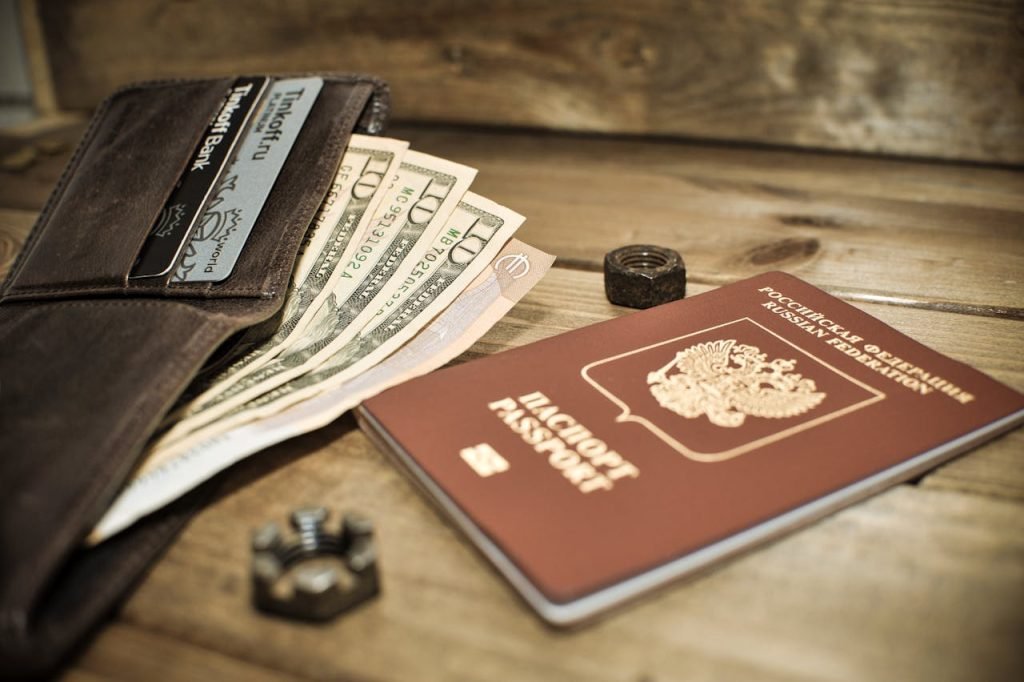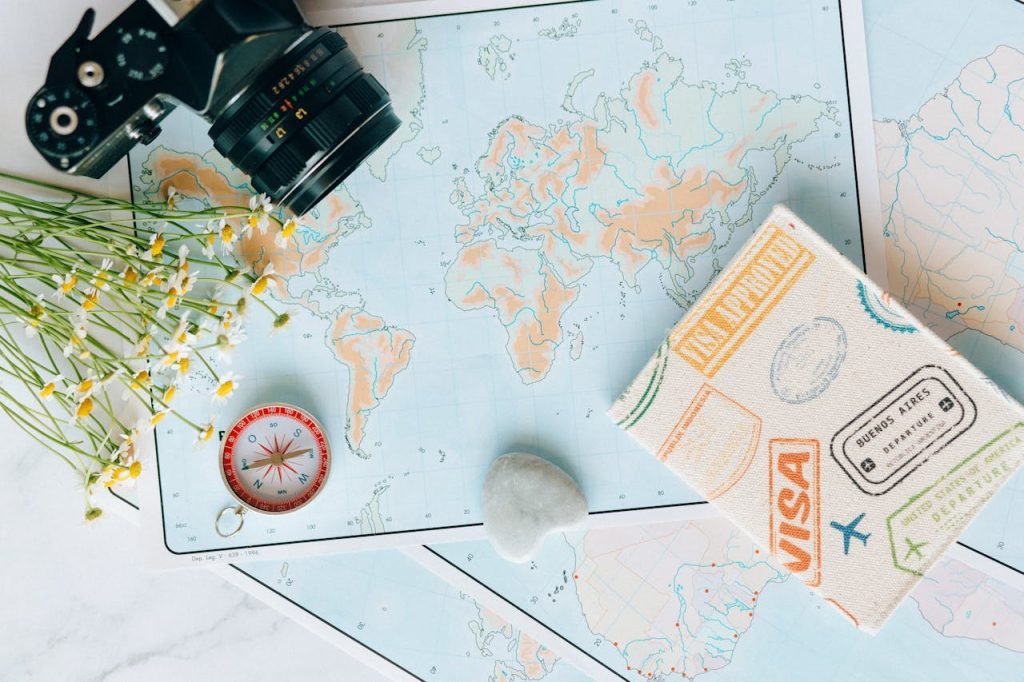There’s something undeniably thrilling about stepping out of your comfort zone, packing a bag, and exploring the unknown. The call to travel the world isn’t just about ticking off famous landmarks or sharing the perfect Instagram shot—it’s about discovering new perspectives, meeting people from all walks of life, and diving into the diverse cultures that make up our planet. For many beginners, though, world travel can seem overwhelming. Where do you even start? How do you manage the costs, stay safe, and truly immerse yourself in the experience without getting lost in the logistics?
In this beginner’s guide to world travel, we’re diving deep into everything a first-time traveler needs to know to start their global adventure. Whether you’re a backpacker with a thirst for spontaneous journeys, a digital nomad craving a change in scenery, or simply someone itching to explore what’s beyond the horizon, this guide will be your road map to the world. We’ll walk you through everything from planning a world trip for beginners and budget-friendly travel tips to creating an itinerary that captures your travel dreams.
The idea of traveling around the world in 2024, with evolving travel trends and an increasing emphasis on sustainable, meaningful experiences, is more attainable than ever. And the best part? You don’t need to have an overflowing bank account or years of travel experience to do it. From budget-friendly global travel tips to solo travel hacks and must-have packing essentials, this guide is crafted to give you everything you need for your journey. So grab a notepad, get ready to map out your next big adventure, and let’s set you up for a journey that you’ll remember for a lifetime.
1. Start with Research and Planning
Before you set out on your adventure, it’s important to understand the risks and challenges that may come with your chosen destination. Knowing the local culture, customs, and potential dangers can help you stay prepared and make informed decisions while on the road.
Define Your Why: What motivates you to travel?
- Check travel advisories: Visit government websites like the U.S. State Department or the UK’s Foreign Office to check for any travel warnings or advisories for your destination.
- Understand local laws and customs: What’s acceptable in one country might be illegal or frowned upon in another. Research basic customs, especially regarding dress codes, public behavior, and interactions with locals.
- Learn about common scams: Research common tourist scams specific to your destination. From fake taxi drivers to pickpockets, being aware can help you avoid getting caught off-guard.
Pro Tip:
Join travel forums or Facebook groups for real-time tips from other travelers who have recently been to the same destination. They can offer up-to-date advice on what to expect.
2. Share Your Travel Plans with Trusted People
One of the most important solo travel safety tips is ensuring that someone knows your whereabouts. Before heading off on your adventure, share your itinerary with a friend or family member so they can check in if necessary.
How to Stay Safe While Traveling Solo:
- Provide a detailed itinerary: Include flight numbers, accommodation details, and any planned activities.
- Set regular check-ins: Schedule regular check-ins via text or email so that someone back home knows you’re safe.
- Use tracking apps: Apps like Life360 or Find My Friends allow loved ones to track your location if you’re traveling in unfamiliar areas or heading out on long hikes.
Pro Tip:
Even if you’re not traveling solo, sharing your travel details with someone back home is always a good idea. In case of emergencies, they’ll know where to find you.
3. Pack Smart: Essential Travel Safety Gear
What you pack can make all the difference when it comes to staying safe while traveling. Aside from your typical luggage, there are a few essential travel safety items that can help you avoid trouble and keep you prepared for any situation.
Essential Travel Safety Gear:
- RFID-blocking wallet: Prevent identity theft and keep your credit card information safe from electronic pickpockets with an RFID-blocking wallet.
- Portable door lock: If you’re staying in hostels or budget accommodations, a portable door lock can add an extra layer of security to your room.
- Personal safety alarm: A small, pocket-sized personal alarm can be a great deterrent in uncomfortable situations. These alarms emit a loud noise to scare off potential threats.
Pro Tip:
Carry a small first aid kit with bandages, antiseptic wipes, and basic medications. It’s a simple addition to your travel gear but can be incredibly useful in minor emergencies.

4. Be Smart About Your Finances
Money is often a target for theft while traveling, especially in busy tourist areas. Keeping your finances safe requires careful planning and smart strategies to avoid being an easy target.
Money-Saving and Safety Travel Tips:
- Use a money belt: Keep your cash, credit cards, and passport in a money belt hidden under your clothes. This keeps your valuables out of reach for pickpockets.
- Carry multiple payment options: Don’t rely on just one credit card or bank account. Spread your money across different cards and carry a small amount of emergency cash.
- Be cautious at ATMs: Only use ATMs located in secure areas like banks, hotels, or shopping malls. Avoid using ATMs late at night or in poorly lit areas.
Pro Tip:
Take photos of your credit cards, passport, and ID, and store them in a secure cloud service. This can be a lifesaver if your wallet gets stolen or lost.
5. Avoid Oversharing on Social Media
While it may be tempting to share every detail of your trip on social media, doing so can put your safety at risk. Posting in real-time about where you are and what you’re doing can make you a target for theft, especially if criminals are watching your social profiles.
Travel Safety Tips for Tourists on Social Media:
- Delay posting: Share your vacation photos after you’ve left a location. This way, you’re not revealing your current whereabouts.
- Limit your audience: Use privacy settings to control who can see your posts. Consider only sharing updates with close friends and family.
- Don’t tag your location: Avoid tagging specific locations like hotels or restaurants until after you’ve left.
Pro Tip:
Create a private photo album or group chat with close family and friends where you can share updates safely without making your location public.
6. Stay Vigilant in Public Spaces
Whether you’re walking through a bustling city market or enjoying a quiet park, staying alert and aware of your surroundings is one of the most important safety tips for travelers. Keeping your personal items secure and practicing situational awareness can help you avoid becoming a victim of theft or other crimes.
Personal Safety While Traveling:
- Watch your belongings: Keep your backpack zipped up, and carry your purse or day bag in front of you. In crowded areas, wear your backpack on your chest to prevent easy access by pickpockets.
- Avoid distractions: Avoid walking while using your phone or wearing headphones, as this can make you an easy target for thieves.
- Blend in with the locals: Try to avoid standing out as a tourist by dressing conservatively and refraining from wearing expensive jewelry.
Pro Tip for Hitchhikers and Nomads:
For hitchhikers, it’s crucial to trust your instincts when accepting rides. Stick to well-lit areas and, whenever possible, travel in pairs. Always have a backup plan in case your route changes unexpectedly.
7. Learn Basic Local Phrases
Knowing a few key phrases in the local language can help you navigate unfamiliar destinations and even get you out of tricky situations. It also demonstrates respect for the local culture and makes it easier to communicate in emergencies.
Travel Safety Tips for Language Barriers:
- Learn essential phrases: Learn how to say “Help,” “I need a doctor,” “Where is the police station?” and “I am lost” in the local language.
- Use translation apps: Google Translate can be a lifesaver when communicating in a foreign country. Download offline language packs for the regions you’ll be visiting.
- Carry a written address of your accommodation: If you don’t speak the local language, having the address of your hotel or Airbnb written down in the local script can help when asking for directions.
Pro Tip:
In areas where English is not widely spoken, it’s helpful to have a business card or written information from your hotel. This can make getting back to your accommodation easier, especially in large cities.
8. Trust Your Instincts and Stay Confident
One of the best ways to stay safe while traveling is to trust your instincts. If something feels off or if you find yourself in an uncomfortable situation, don’t be afraid to walk away, change plans, or seek help. Confidence and self-awareness can be powerful deterrents to potential threats.
Expert Travel Safety Advice:
- Stay confident: Walk with purpose and confidence, even if you’re unsure of where you’re going. Appearing lost or disoriented can make you a target for scams or theft.
- Don’t be afraid to say no: If you’re approached by someone offering unsolicited help, a ride, or a tour, trust your gut. It’s okay to politely decline and move on.
- Ask locals for advice: Locals can often provide the best advice on which areas are safe to explore and which ones to avoid. Hotel staff, shopkeepers, or even your Airbnb host can offer valuable insights.
Pro Tip for Solo Travelers:
If you feel unsafe walking alone, consider using rideshare apps like Uber or Lyft to get back to your accommodation. It’s better to spend a little extra money than risk walking in an unsafe area.
9. Protect Yourself from Travel Scams
Tourists are often prime targets for scams, especially in busy markets, airports, or popular attractions. Understanding common travel scams and how to avoid them is one of the most valuable travel safety tips.
How to Avoid Travel Scams:
- Fake taxi drivers: Always use official taxis or rideshare services. Make sure the meter is running, or agree on a price before the journey begins.
- Over-friendly locals: Be wary of people who approach you with unsolicited offers for tours, help with directions, or free gifts.
- Pickpocketing distractions: Scammers often use distractions like street performances or fake spills to steal from unsuspecting travelers. Keep your valuables close and secure at all times.
Pro Tip:
Before your trip, read up on common scams in your destination to know what to look out for. Being aware is the best way to avoid falling victim.
Conclusion
Traveling should be a fun and enriching experience, but it’s important to always prioritize your safety. By staying informed, packing the right safety gear, and using common sense, you can enjoy a worry-free adventure no matter where you’re headed. Whether you’re traveling solo, with family, or as a seasoned backpacker, these expert travel safety tips will help ensure that your journey is both safe and memorable.
FAQs
1. What are the most affordable ways to travel the world as a beginner?
Traveling on a budget is possible with a few strategic choices. Opt for budget airlines, use public transportation, and stay in affordable accommodations like hostels or short-term rentals. Consider work exchanges, Couchsurfing, or volunteering for unique and economical experiences. Booking flights in advance, using loyalty points, and traveling off-peak can also save money.
2. How do I create a travel itinerary that balances structure with spontaneity?
A flexible itinerary gives you structure while leaving room for exploration. Start by listing must-see places, then add extra time for spontaneous adventures. Aim for a balance by scheduling popular attractions and allowing downtime in between. This approach keeps you organized without feeling rushed, making the journey enjoyable and adaptable.
3. Is it safe to travel solo as a beginner?
Solo travel can be safe with the right precautions. Research destinations beforehand, stay in well-rated accommodations, and let trusted contacts know your plans. Trust your instincts and avoid isolated areas at night. Solo travel groups, local tours, and hostels also offer safe, social settings for meeting fellow travelers along the way.
4. How do I pack efficiently for a world trip across different climates?
For versatile packing, stick to lightweight, multipurpose clothing layers. Choose items that mix well for both warm and cool climates, like moisture-wicking fabrics and a reliable jacket. Packing cubes, a compact first aid kit, and travel-sized toiletries can save space. If needed, buy or rent specific gear for activities like hiking or skiing on the go.
5. What travel apps are essential for a beginner’s world adventure?
A few must-have apps make world travel smoother: Google Maps or Maps.me for offline navigation, Google Translate for language help, XE Currency for exchange rates, and Rome2Rio for route planning. Staying connected is also easier with mobile SIM options like Airalo or Holafly. These apps provide reliable support for navigating, translating, and budgeting during your trip.

